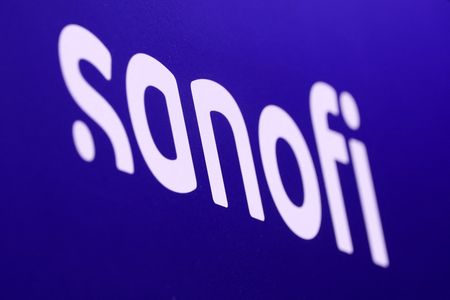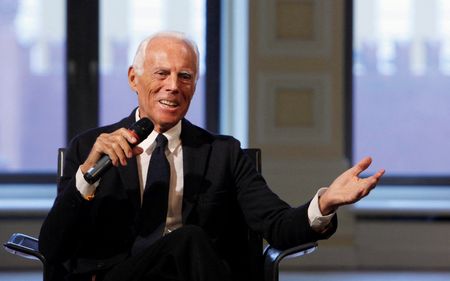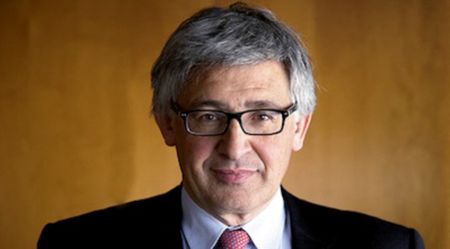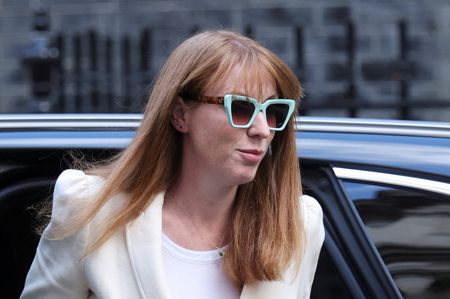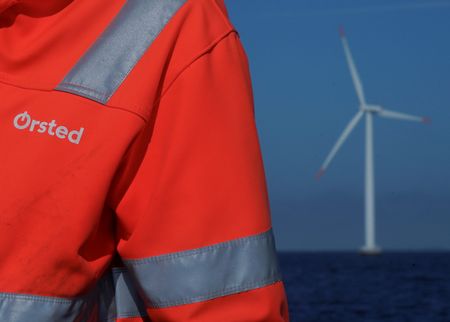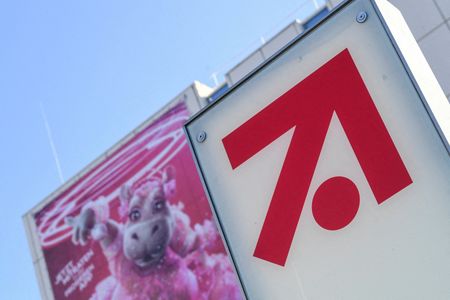By Maggie Fick
LONDON (Reuters) -Shares in French drugmaker Sanofi fell more than 10% on Thursday, wiping nearly $13 billion off its market value, after late-stage trial data for its experimental inflammatory disease drug amlitelimab disappointed Wall Street.
The company said amlitelimab, which it is developing for atopic dermatitis, a severe form of eczema, met all main goals in the Phase III study, showing statistically significant improvements in skin clearance and disease severity compared with placebo after 24 weeks.
But the data looked weak against Dupixent, Sanofi’s best-selling medicine, which treats the same condition and is due to lose patent protection in 2031.
The company has billed amlitelimab as a potential successor to Dupixent, and Barclays analyst Emily Field told Reuters investors had viewed amlitelimab as Sanofi’s lead pipeline asset to follow on from that drug ahead of the data release.
“That’s why we’re seeing a big reaction in the stock, because of the concern that Sanofi is not going to have enough in its pipeline to replace Dupixent after patent expiry,” Field said. “This is increasingly looked at as a cliff stock.”
Shares were down 10.3% at 0950 GMT, making Sanofi the biggest faller on Europe’s blue-chip STOXX 600 index.
Dupixent, which Sanofi jointly developed and co-owns with drugmaker Regeneron, is approved not only for eczema but also for other immune-related conditions, including severe asthma. With the patent expiry looming, Sanofi has doubled down on immunology, making amlitelimab a pillar of that effort.
JPMorgan said the data confirmed the drug is less effective than Dupixent, which brought in about 13 billion euros ($15.22 billion) in sales for Sanofi in 2024.
Analysts at Jefferies said the Phase III results fell short of its earlier trial and of rival biologic drugs, though the drug’s safety profile and convenient 12-week dosing could still support its use.
UBS called the drug’s efficacy solid despite it being weaker than Dupixent, adding that this could be countered by the advantage of amlitelimab’s less frequent dosing, which some injection-averse patients may prefer.
($1 = 0.8542 euros)
(Reporting by Maggie Fick; Editing by Bernadette Baum, Jan Harvey and Muralikumar Anantharaman)

